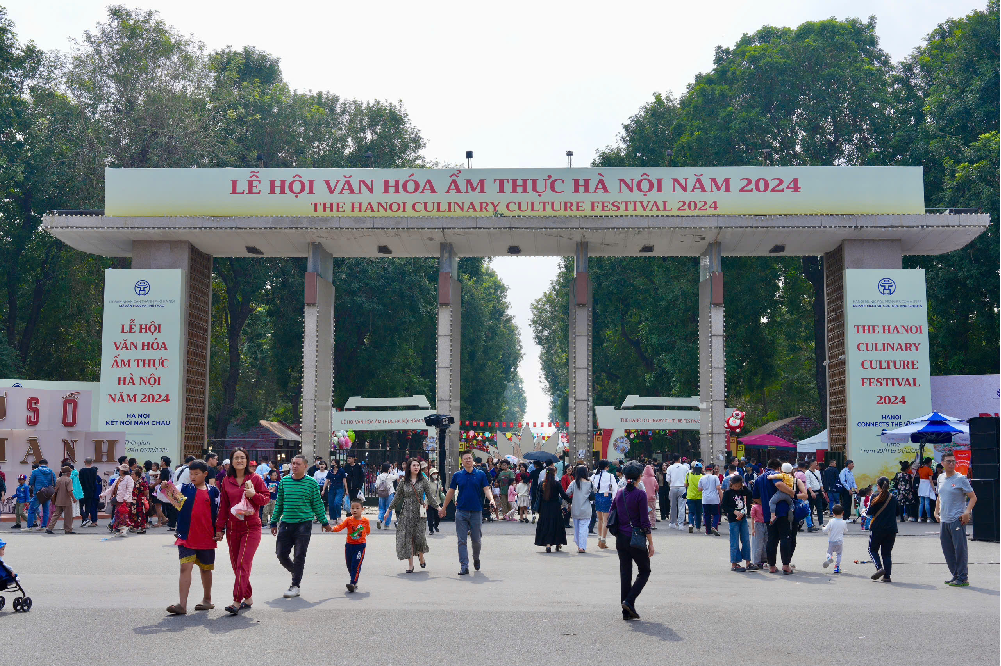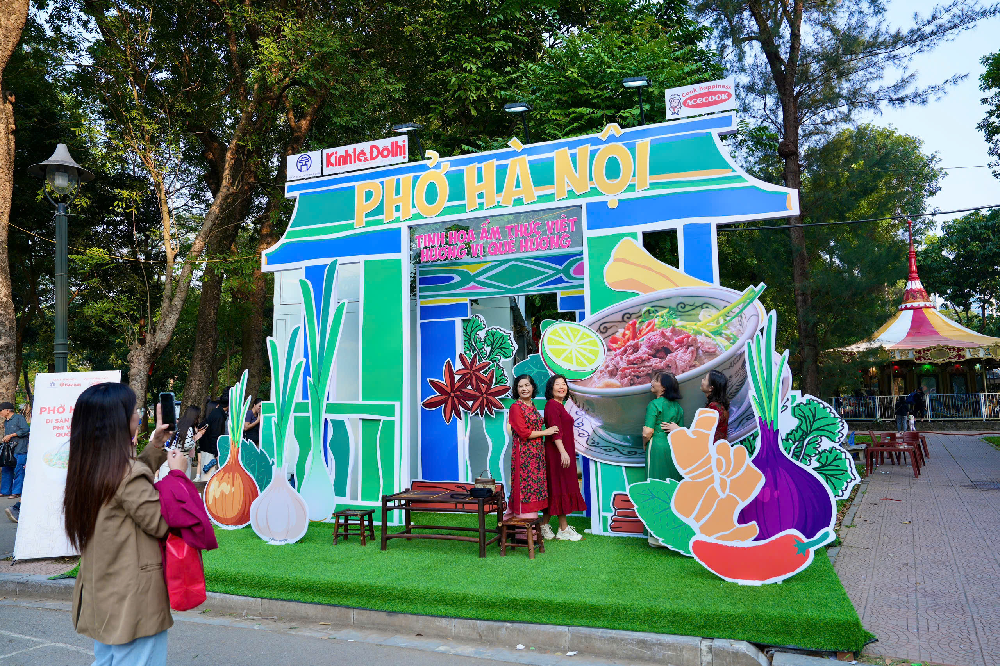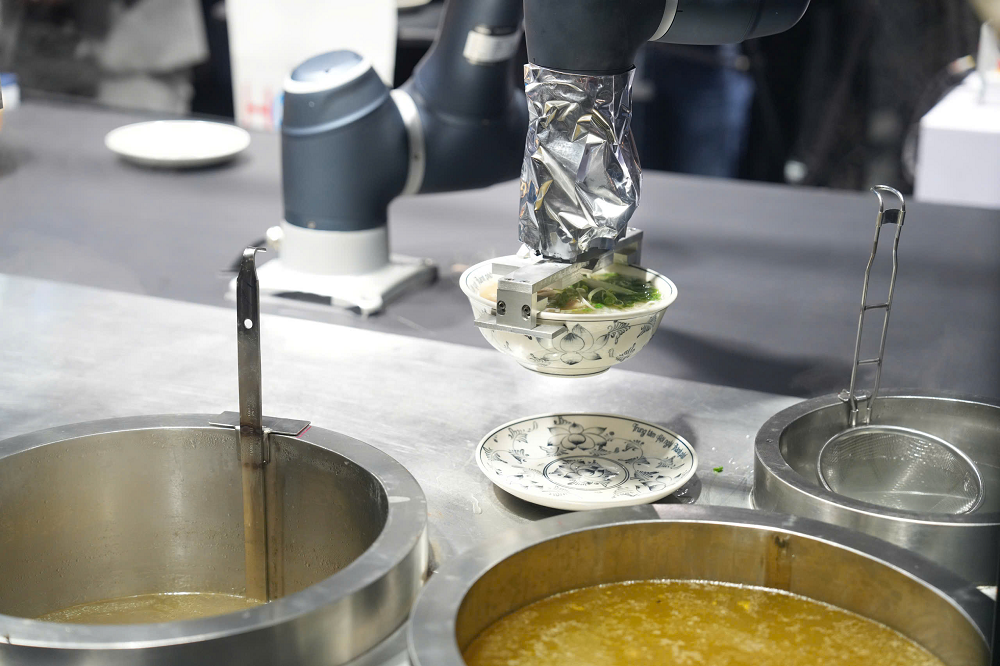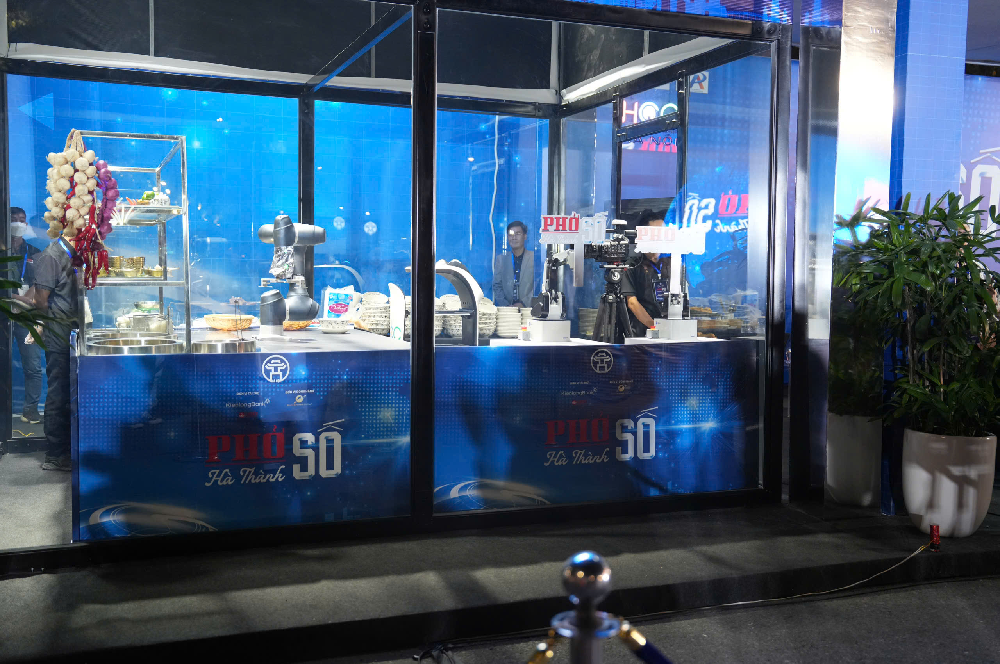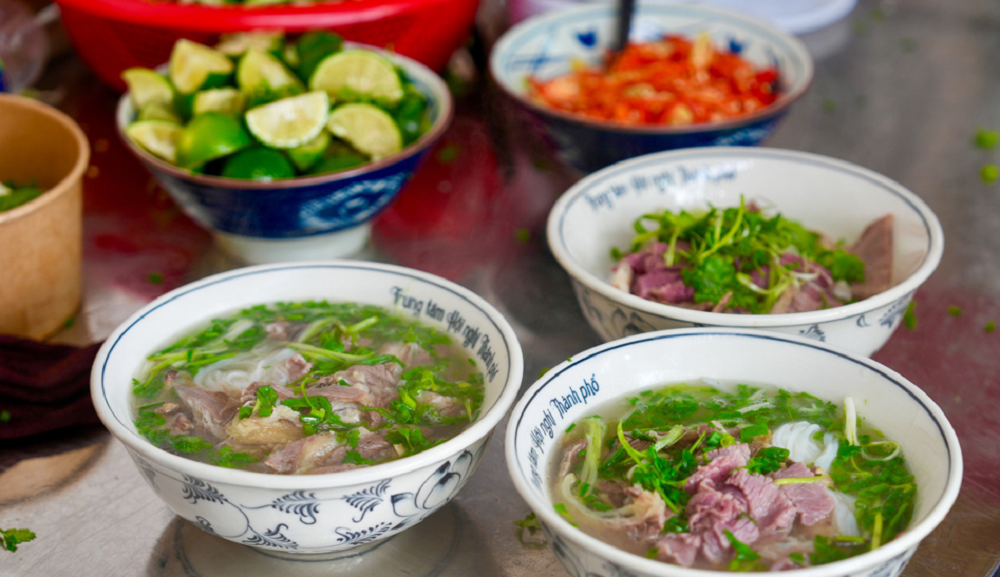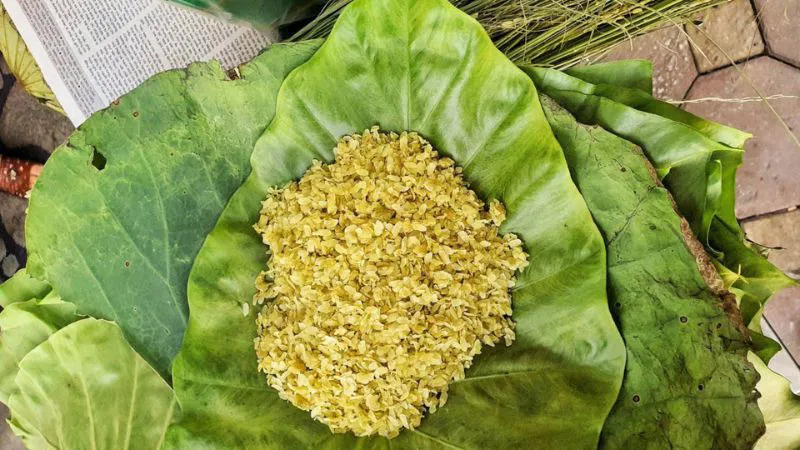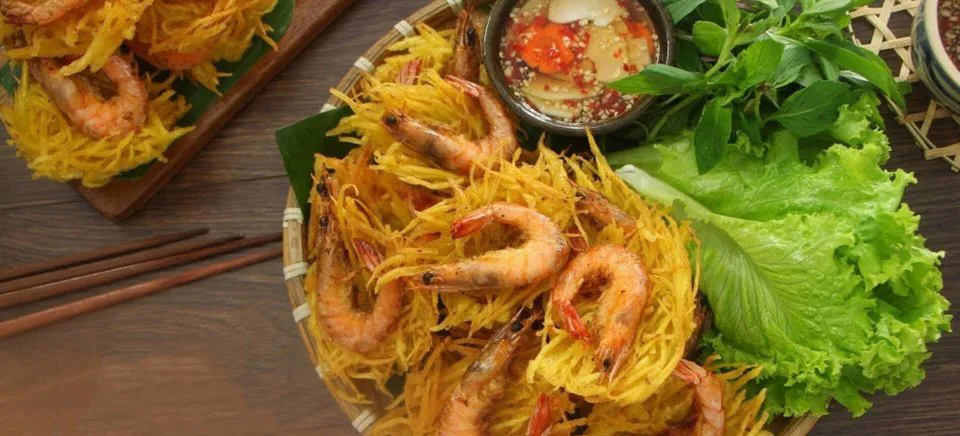Hanoi Culinary festival 2024 highlights iconic pho Hanoi
Through a series of engaging activities, the Hanoi Food Culture Festival 2024 promotes Hanoi pho, an intangible cultural heritage.
The Hanoi Culinary Festival 2024, themed "Hanoi Connecting Five Continents," wrapped up on December 1, drawing nearly 110,000 visitors to Thong Nhat Park over its three-day run.
Featuring 100 booths from Hanoi businesses, craft villages, and foreign embassies of France, South Korea, and Italy, the event celebrated Hanoi's rich culinary heritage and global connections. It not only highlighted the city's unique cultural flavors, but also showcased its ability to blend tradition with modern innovation.
| A large turnout of Hanoi people at the culinary festival. Photo: Duy Khanh/ Economic and Urban Newspaper |
One of the most captivating aspects of this year's festival was the introduction of "Digital Pho Hanoi," an exciting fusion of technology and tradition that marked a significant step forward for the city's culinary landscape. Visitors were thrilled to experience traditional pho with a modern twist, as robots prepared and served the beloved dish.
Hanoi's commitment to preserving its culinary heritage while embracing technological advances was exemplified by this outstanding invention. For the first time, the people of Hanoi were able to witness the craft of pho-making through the use of state-of-the-art robotics. In addition to the dish itself, the experience focused on Hanoi's culinary future, which is a fascinating fusion of culture, history, and technology.
Tourists snap photos at the Hanoi pho stall. |
At the Digital Pho booth, guests used their phones to scan QR codes to reserve tables and place orders. A robot then arranged ingredients and poured broth into bowls. Though still experimental, the robot's precise movements and attention to detail demonstrated the potential of merging modern technology with Hanoi's age-old culinary practices. As the robot delicately prepared each bowl, visitors could feel the harmony between the future and tradition, where one complements the other.
A robot prepares a bowl of pho. |
Curious about the robotic cook and waiter at the Digital Pho booth, Dang Minh Chien and his wife from Ba Dinh District lined up to experience it firsthand: "The robot is really fascinating. It performs many tasks that help people. If this model is further developed, it could provide important assistance in the future," Chien said.
This festival not only preserved Hanoi's traditional food culture, but also highlighted the city's role as a premier culinary and cultural tourism destination. It served as a platform for domestic and international cooperation, promoting Hanoi as an innovative global hub.
| The Digital Pho Hanoi booth. |
Pho, a beloved dish found throughout Vietnam, is at its finest in Hanoi. Hanoi Pho has been recognized as a National Intangible Cultural Heritage. Each pho vendor in Hanoi offers a unique touch.
Each pho shop in Hanoi has its own approach to this cherished dish. Co Duy Nghiep, owner of a pho noodle factory, told The Hanoi Times about the delicate art of making the perfect pho noodles: "Pho noodles are an essential part of a good bowl of pho. To make soft, white noodles, you have to carefully adjust the amount of rice, the soaking time, and the drying process depending on the weather."
| Different types of pho served at the festival. |
Meanwhile, Bui Chi Thanh, owner of the Pho Thin Restaurant at Hoan Kiem Lake, stressed the importance of the broth: "A good broth determines the overall quality of the pho. Our family's recipe, which has been passed down for generations, remains unchanged, even though we now use gas instead of charcoal for cooking."
Nguyen Bich Thuy of Pho Nho Restaurant said her secret to the fragrance of her broth is the labor-intensive addition of roasted sa sung (sand worm). "It enhances the aroma and flavor of the broth, although its preparation - from roasting to thorough cleaning to remove sand - is quite labor intensive." These passionate artisans and their dedication to the craft of pho-making illustrate why the dish has become more than just a meal in Hanoi; it is a reflection of the city's soul.
Pho is not the only dish to grace Hanoi's culinary scene. Other iconic dishes featured at the festival include West Lake Shrimp Cakes, Com Vong (green glutinous rice from Vong Village), Phu Thuong sticky rice, and Uoc Le Village Gio, each a symbol of Hanoi's diverse culinary culture and deep-rooted history.
Com Vong, a signature autumn delicacy of Hanoi, is made from the finest "Nep cai hoa vang" rice harvested between July and October, and is delicately processed and wrapped in lotus leaves to preserve its fresh aroma. Originating from Vong Village in Cau Giay District, this treat symbolizes Hanoi's culinary heritage. Best enjoyed with green tea, com offers a nostalgic taste of Hanoi's autumn, making it a must-try for visitors.
| Com Vong is a must-try delicacy for visitors to Hanoi. |
Uoc Le Village in Hanoi's Thanh Oai District is famed for its traditional gio cha (Vietnamese pork roll and pork sausage), an essential dish during Tet (Lunar New Year) celebrations. Known for its quality and authenticity, gio cha Uoc Le is crafted from fresh pork and fish sauce, and wrapped in banana leaves to preserve its aroma. Famous varieties include gio lua (steamed pork roll) and cha que (pork sausage), celebrated for their delicate flavors and distinctive texture. The villagers of Uoc Le have taken this craft nationwide, ensuring its legacy in Vietnam's culinary heritage.
West Lake Shrimp Cake is a quintessential Hanoi dish, cherished for its crisp exterior, tender interior, and rich flavor. Made with fresh shrimp and wheat flour, the dish dates back to the 1930s when it was sold by street vendors along Thanh Nien Street and the West Lake area. Served hot with spicy fish sauce, pickled green papaya, and fresh herbs, this timeless delicacy evokes nostalgia for many Hanoians. Its simplicity and unique flavor make it a must-try for visitors exploring Hanoi's culinary culture.
The Director of Hanoi's Department of Culture and Sports, Do Dinh Hong, shared that the festival, themed "Hanoi Connecting Five Continents," is a celebration of the capital's rich cultural and culinary heritage. It aims to honor and preserve the traditional values of Hanoi, while showcasing the city's diverse food culture to the world.
"The festival showcases and promotes Hanoi as a destination for tourism, culture, and cuisine, providing an opportunity for the city, embassies, localities, and organizations to meet, exchange, and display their products," said Hong.
West Lake Shrimp cake served hot with tangy fish sauce. |


